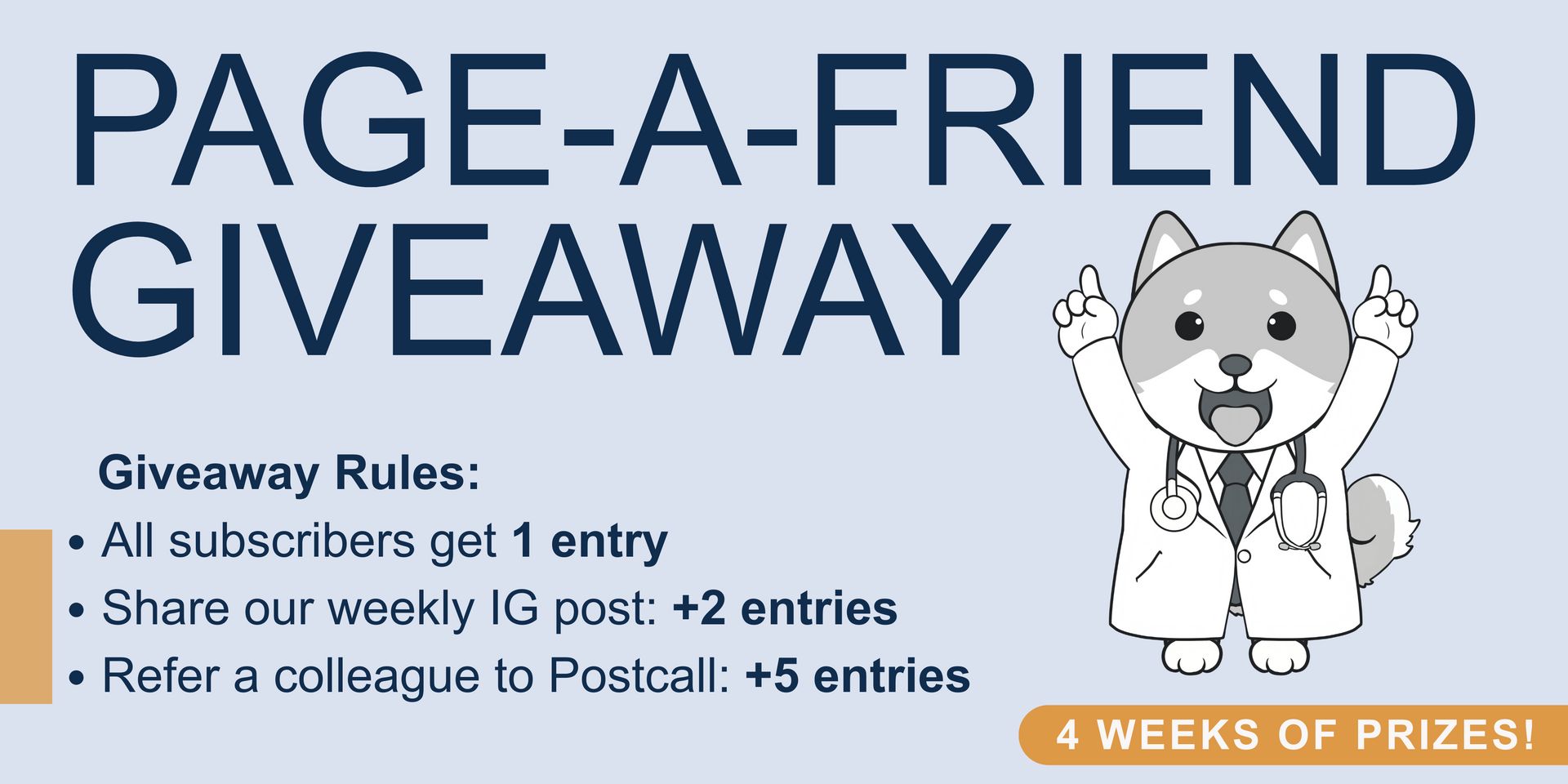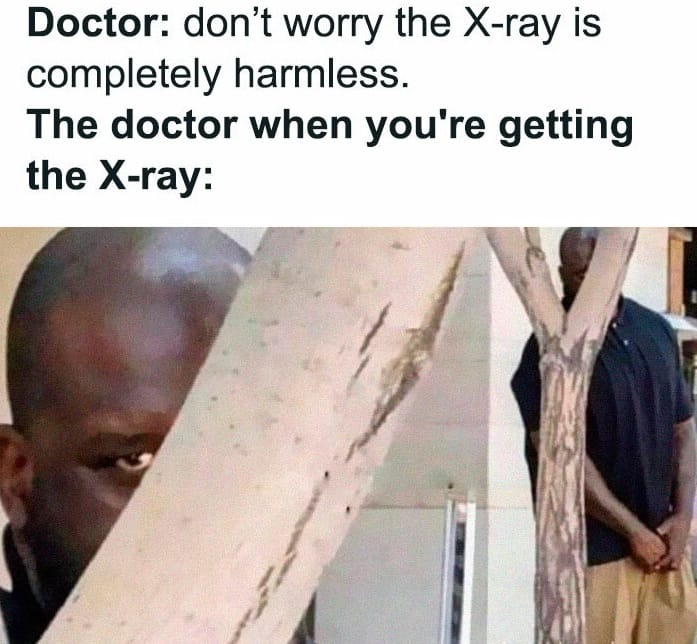
Good morning!
Scientists may have just found the elixir of life: powerlifting and group chat. A 79-year-old Manitoban just went from heart failure to benching 120 lbs. And according to researchers, he’s not a prairie unicorn. A new study suggests a quarter of older Canadians claw their way back to full health after illness — as long as they’re moving, sleeping, and still have someone to complain to. Behold the universal prescription: fewer pills, more people.
Today’s issue takes 5 minutes to read. Only got one? Here’s what to know:
Melanoma care delays hit Latino patients hardest
AVM bleed risk doubles with age and aneurysms
Minimally invasive surgery proves just as powerful
FDA crackdown stalls multiple breakthrough drug launches
Tariffs send furniture prices through the roof
Scientists crack code for lab-made anti-cancer compounds
Quitting smoking slashes dementia risk fast
Let’s get into it.
Staying #Up2Date 🚨
1: Closing the Gap — Melanoma Diagnosis Delays in Latino Patients
A qualitative study looked at why Latino patients face delays in melanoma diagnosis and treatment. Insurance hurdles, referral slowdowns, and language barriers were major contributors — but patients who self-advocated or received care in their preferred language saw faster diagnosis and treatment. The findings reinforce that reducing disparities means addressing both systemic delays and communication access.
2: Who’s Most at Risk for Hemorrhage in Unruptured Brain AVMs?
In a cohort study of 3,000 people with unruptured brain arteriovenous malformations, certain factors significantly increased hemorrhage risk: older age (HR 2.01 for those 60+ vs <20; P = .008), associated arterial aneurysms (HR 1.66; P = .03), and cerebellar or deep supratentorial locations (HR 1.87; P = .01). These data offer practical guidance when counseling patients on AVM natural history and surveillance decisions.
3: Minimally Invasive vs Open Pancreatectomy — No Oncologic Trade-off
In an RCT of 258 patients undergoing resection for left-sided pancreatic cancer, minimally invasive pancreatectomy proved equivalent to open surgery in long-term oncologic outcomes, including overall survival and disease-free survival. The results confirm that minimally invasive approaches are a safe alternative for eligible patients.
Page-a-Friend Giveaway 🎉

It’s here! The Postcall “Page a Friend” Giveaway starts today!
We’re celebrating our community with a 4-week giveaway, and week 1 kicks off strong: a Littmann Classic III Stethoscope could be yours.

Here’s how to play:
You’re already entered just by being a subscriber.
Want better odds? Page a friend (or three)! Refer verified clinician colleagues and get 5 extra entries per referral.
Share our Instagram giveaway post and tag @readpostcall.ca for 2 extra entries.
All entries also count toward the grand prize draw — details coming soon.
Share Postcall with your clinician colleagues using your personal referral link below for bonus entries toward this week’s prize draw:
Unique referral code {{rp_refer_url}}
Bonus: your friend gets an entry too!
Help us grow the most fun, interesting inbox in Canadian healthcare.
Eligibility: Open to licensed clinicians in Canada. See terms and conditions.
A Toe-tally Unique Study 🦶
Researchers are one clip closer to diagnosing lung cancer.
What happened: The University of Calgary is asking Canadians to mail in their toenail clippings — yes, really — all in the name of lung cancer research.
Why it matters: Toenails aren’t just for painting (or hiding in socks). They quietly store long-term data about exposure to radioactive toxins like radon gas — the second-leading cause of lung cancer. Fingernails get contaminated by whatever you touch all day. Toenails? They mind their business and keep a cleaner record.
The team first ran a 5-year pilot study with around 40 Canadians, comparing nail samples from people in high vs. low radon homes. No surprise: the longer someone lived with higher radon exposure, the more toxins showed up in their nails.
Now, thanks to new funding from the Canadian Cancer Society, they’re scaling up — aiming for 10,000 participants across the country. They’ve already hit 5,000. Anyone who joins gets a radon testing kit and is asked to collect four months’ worth of clippings.

So how does it actually work? A physics professor on the team melts the clippings down (yes, melts) using isotope dilution mass spectrometry, essentially blasting them with plasma to pull apart their chemical makeup. From there, researchers can detect even trace amounts of radioactive lead from radon decay.
It’s sensitive enough to catch early exposure, which could help doctors sound the alarm long before symptoms show up.
Bottom line: Before you sweep your next toenail clipping into the trash, consider mailing it instead. Turns out, they might be more useful in a lab than on your bathroom floor.
Hot Off The Press

1: 🏞️ The Canada Strong Pass is back for the holidays and summer 2026. Starting Dec. 12, kids under 18 get free entry to museums, galleries, and Via Rail with an adult. Young adults (18–24) get discounts too — plus breaks on Parks Canada sites, historic landmarks, and even camping fees. A federal nudge to swap Roblox gift cards for rail tickets.
2: 💊The FDA just slapped Novo Nordisk’s Indiana plant with an “official action indicated” label. That’s regulator-speak for out of compliance. That puts multiple biotechs’ drug approvals at risk, including Regeneron and Scholar Rock, who rely on the facility for manufacturing. One plant just became a bottleneck for half the pipeline.
3: 🏛️ Trump’s latest tariffs on Canadian softwood lumber and furniture kicked in Tuesday, stacking on duties that already push some imports above 45%. Cabinets, vanities, and other wooden furniture now face 25–50% tariffs, while lumber adds another 10%. Canadian groups call it “misguided,” translation: expect pricier builds and thinner margins.
4: 🧬 Scientists at UBC Okanagan cracked how plants make mitraphylline — a molecule with strong anti-tumour potential. They traced two enzymes that twist molecules into a rare 3D “spiro” shape, now reproducible in the lab. Could be a greener, cheaper way to churn out future cancer drugs.
Notable Numbers 🔢

84: the percentage of MLB teams that go on to win a best-of-seven series after taking a 2–0 lead. Not great odds for the Jays, who’ll need a statement game to stay alive.
2: the number of comets swinging by Earth this month. Seeing them may require binoculars or a small telescope, but for this rare celestial show, the naked eye might just catch them too.
20%: the slowdown in memory loss for middle-aged adults who quit smoking — enough to bring their dementia risk down to the level of a never-smoker.
2×: the higher risk of serious side effects for chronic pain patients taking tramadol. The drug only shaved 0.9 points off pain scores (below the threshold for meaningful relief) yet was twice as likely to trigger complications, most commonly cardiac.
35–51: the number of days before major holidays when Google Flights says fares are lowest. Translation: one to seven weeks out.
🫀 Taking the Pulse
Last week, we asked: what hobbies did you have to put on hold during medical training? According to your deluge of responses, it’s safe to say doctors know sacrifice.

Some standout replies:
“Coin research.”
“Gave it up in MS4/PGY1, but trying to carve out more time in PGY2 onward.”
“Music. I was a concert-level pianist. Residency made it impossible to keep up that kind of practice.”
“Had my girlfriend (now wife) hide my Sega Genesis when I got serious about med school. Got in, but still miss NHL ’94.”
“My free time! With a child in med school, if I’m not studying, I’m caregiving.”
“Motorcycle racing. Came back to it 15 years later, won a few amateur championships, went pro, then eventually swapped it for a sailboat I still race today.”
“Team sports are tough when your schedule flips every week—commitment becomes impossible!”
Our conclusion: passion doesn’t die… it just waits for fellowship.
Postcall Picks ✅
🎧 Listen: to a Short Wave episode on why we love being scared. A psychiatrist explains how horror movies double as DIY exposure therapy.
🥣 Make: roasted pumpkin soup. with coconut milk and toasted pepitas — comfort food that tastes like fall in a bowl.
💰 Grow: your cross-border wealth. Learn how RRSPs and TFSAs help Canadians keep more of their US dividend income.
📺 Watch: a doctor try on Halloween costumes and grades their anatomical accuracy. Spoiler: some are (delightfully) wrong.
Relax
First clue: Accepted set of principles or beliefs
Need a rematch? We’ve got you covered. Check out our Crossword Archive to find every puzzle we’ve ever made, all in one place.
Think you crushed it? Challenge your physician friends to beat your time.
Meme of the Week

Help Us Get Better
What'd you think of today's edition?
That’s all for this issue.
Cheers,
The Postcall team.

